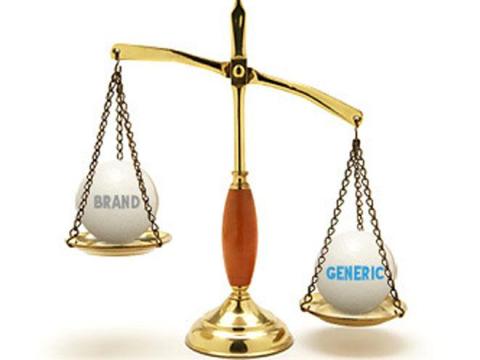Once the patent runs out on any original medication the insurance companies as well as patients eagerly await the appearance of Generic medicines as the savings they bring could be a benefit. But new proof suggests the generics don’t always complement the originals.
 A year ago a pharmacologist received a flood of emails from people to his web site reporting relapses of their depression once they switched from the brand name drug to the generic drug. An independent drug testing group was asked to analyze the 2 medicines, and the results indicated that the generic mixed a lot more quickly in the test solution. Later FDA acknowledged that indeed, the generic medicine ended up getting to the blood faster. This reached optimal concentration in 2 to 3 hrs versus 5 to 6 for the brand, which additionally proved that it got out of the blood quicker too. In another instance the independent screening group found variations in a hypertension medication and its generic edition. Generics don’t essentially function the same way the brands do; actually, the FDA’s guidelines don’t require generic medicines to endure clinical screening. Instead, manufacturers publish evidence that the generic is basically identical to the brand product.
A year ago a pharmacologist received a flood of emails from people to his web site reporting relapses of their depression once they switched from the brand name drug to the generic drug. An independent drug testing group was asked to analyze the 2 medicines, and the results indicated that the generic mixed a lot more quickly in the test solution. Later FDA acknowledged that indeed, the generic medicine ended up getting to the blood faster. This reached optimal concentration in 2 to 3 hrs versus 5 to 6 for the brand, which additionally proved that it got out of the blood quicker too. In another instance the independent screening group found variations in a hypertension medication and its generic edition. Generics don’t essentially function the same way the brands do; actually, the FDA’s guidelines don’t require generic medicines to endure clinical screening. Instead, manufacturers publish evidence that the generic is basically identical to the brand product.
Even though the universal pill offers the exact same chemical within the exact same dose still it may not be identical. Some medicines use means of timed-release which may be under obvious protection. Consequently, the actual generic versions should develop their very own way of timed-release, which might not really work the same way. The FDA claims the actual differences aren’t substantial. However, in September the FDA announced it would conduct research to be able to determine the underlying cause for the complaints.
Things You Can Do While Taking Generics
- 1. Note Your Health Changes: Report every lab results associated with your problem, for example cholesterol or glucose levels. If you are on the drug to manage hypertension, make a log of the blood pressure level readouts; if it’s a thyroid medication, compare your hormonal levels (from diagnostic tests) around the generic in comparison to the name-brand drug. Should you note a big change talk to your doctor.
- 2. Be Conscious Of Your Health: Pay attention to your subjective signs around the generic drug. If you take an anti-depressant, has your mood transformed? If you take a thyroid hormone, have your time levels changed? Is the generic acting as the brand drug to manage signs (like fatigue) that do not appear on a lab test?
- 3. Watch Out For Negative Effects: The drug’s pamphlet lists known negative effects. Be on the lookout of these or any unexpected ones that may arise, for example headache, lightheadedness, or nausea.
- 4. Experiment With The Brand And Generic: Whenever you change to a normal drug, have a few doses from the brand medicine around (or ask your physician for any free trial). If you think that you are obtaining a different reaction around the generic, switch back briefly if the problem disappears. For example, if you see you aren’t sleeping as quickly when using the generic pill as you did using the brand, switch back for a few nights and find out what goes on.
- 5. Report To A Doctor, The FDA Or Health Forums: Alert your physician should you detect any inaccuracy or if your feelings or health goes through a substantial change. When you straighten out the issue, report to the FDA’s Med Watch program. Search what the other patients have said concerning the generic drug you are taking and report your personal experiences at health forums.


 Cart : 0 items - $0.00
Cart : 0 items - $0.00










